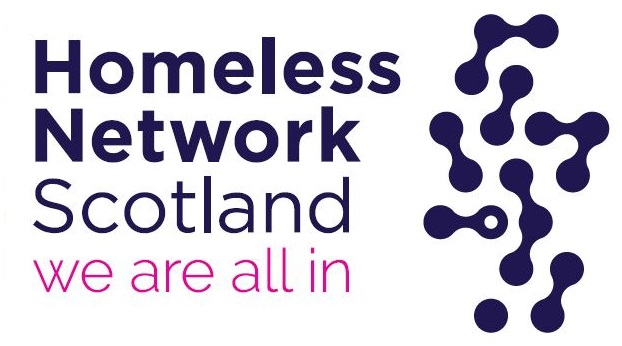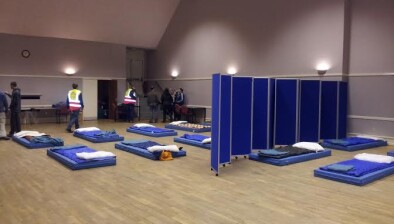New resolutions to help Everyone Home in 2022
Leading homelessness charities, academics and people with personal experience of homelessness have published ‘Platform for Change 2022’ outlining urgent priorities for the coming year to mitigate the scale and experience of homelessness during the ongoing pandemic.

The Everyone Home collective wants to make faster gains on key fronts in 2022, by connecting knowledge, capacity and networks – drawn from across the third and academic sectors – with a public sector in Scotland facing unprecedented challenges.
It is a public health emergency, but the pandemic and its aftermath will also create the conditions that create homelessness — job loss, rent arrears, poverty and the breakdown of personal relationships and living arrangements.
Maggie Brünjes, chief executive of Homeless Network Scotland, which facilitates the collective said: “Housing was our first line of defence against COVID-19 before vaccines and the other measures we have in place now. The pandemic brought into sharp focus how linked our home, health and wellbeing are and shone a brighter light on rough sleeping as the public health emergency it always was.
“We know the pandemic and its aftermath will create conditions that create homelessness — loss of employment or reduced hours, rent arrears, deeper poverty and the breakdown of personal relationships and living arrangements. To prevent this, we need to protect the progress that has been made and make faster gains on the big issues that drive homelessness.”
At the start of the pandemic, the collective set out three immediate priorities: more homes for good health; no return to rough sleeping; no evictions into homelessness. Since then, the collective has collaborated with the Scottish Government, local authorities and housing associations to implement shared priorities around this triple-lock of measures.
These measures also now underpin the collective’s approach for 2022 – setting out what matters and why – along with the specific role that the Everyone Home collective will contribute, including the following actions:
- An ‘Ask About Housing’ professional and public perceptions programme to support implementation of new duties to prevent homelessness.
- Commissioning expert support to scope the potential of high-value social investment to increase housing supply in targeted areas.
- A route-map on a role for the private rented sector to increase housing capacity and options to prevent and respond to homelessness.
- Securing a strategic funding partnership to bring about an end to destitution among people with no recourse to public funds.
Many aspects of Scotland’s response to homelessness have increased in pace in response to the pressure of the public health emergency since 2020. The challenge for organisations working in the sector has been to keep pace with rapid change and safeguard what has been achieved.
The collective has identified the key fronts where faster gains are needed in 2022:
- Poverty Reduction: as poverty is the key driver of homelessness, in all its forms.
- Structural Levers: local housing systems where supply matches demand. Stopping homelessness is also dependent on the health of local labour markets and the strength of
the welfare safety net. - Public Sector Readiness: public sector infrastructure joined up to prevent homelessness, with well-resourced Rapid Rehousing Transition Plans.
- Implementation Gap: homelessness policy is strong but change on the ground is slow. More focus on implementation and more value given to persistence, continuity and implementing what works.
- Health & Social Care: better connect HSCPs in joint planning and commissioning of key approaches to prevent homelessness and provide support at home.
- Path Dependency: meet resistance to change head-on and clearly articulate the new directions to end homelessness as set out in Housing to 2040 and the National Plan to End Homelessness.
- Place-based: because all homelessness starts in a community. The need to spotlight what causes it and anchor more prevention work in communities.
- Coproduction: lived and frontline experience of homelessness brings unique and important insight. And ensuring the third sector is represented as a strategic partner, not solely a provider of services.
Maggie Brünjes added: “The emergency legislation introduced in the Scottish Parliament early in the pandemic played a vital role in protecting people’s homes – and may in part have contributed to the reduction in homelessness reported during the first year of lockdown. We need to build from this with an end to evictions into homelessness, the prevention of avoidable evictions along with greater focus on reducing poverty and better joined-up working across all sectors and services.”







